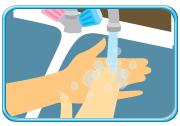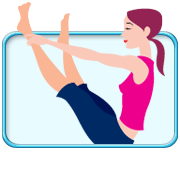Recurrent Herpetic Labialis
Recurrent Herpetic Labialis is an infection caused by Herpes Simplex I virus. The
infection usually occurs on the lips and the edge of the nostril. The exudates contain
Herpes Simplex I virus which is highly infectious.

Symptoms
When the symptoms start to appear, there is an itchy and burning sensation in the
affected area where blisters will later be formed. When the blisters burst, they
become shallow ulcers of varying shapes.
Why is there Recurrent Herpetic Labialis?
After recovery from Primary Herpetic Stomatitis, the Herpes Simplex I virus becomes
dormant in the body. The virus will become active again whenever the body resistance
is low, causing Recurrent Herpetic Labialis. Factors leading to low body resistance
include:
• Mental stress
• Physical fatigue
• Influenza or other diseases
• Menstruation
• Sun bathing
Treatment
Recurrent Herpetic Labialis will usually heal within 2 weeks. To avoid pain or passing
the virus to others, you can try the following methods:

• Keep the affected area clean and dry to avoid bacterial infection.
• Avoid eating hard or spicy food which will irritate the affected area.
• Avoid touching the affected area with your hands. Wash your hands immediately
after touching the affected area. This could prevent the spread of the infection
to other people or to other parts of your body such as the eyes or the genital organs,
leading to conjunctivitis or other skin infection respectively.
• Avoid intimate contact with others, such as kissing.
• You may consult your doctor or dentist's opinion for applying medicated ointment
onto the affected area to relief discomfort.
• In severe cases, doctors will prescribe medication to reduce pain.
Prevention
Herpes Simplex I virus remains dormant in the nerve cells of the body. There is
neither medication therapy nor treatment modality that can completely destroy the
virus. Therefore, the only thing we can do to prevent its recurrence is to increase
our body resistance. For example:

• Maintaining a healthy lifestyle
• Having enough rest
• Having balanced diet
• Having sufficient exercise